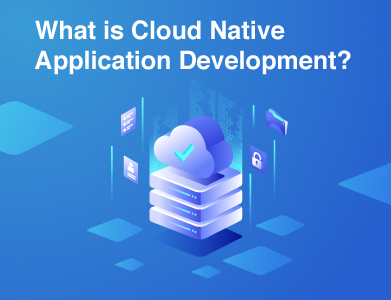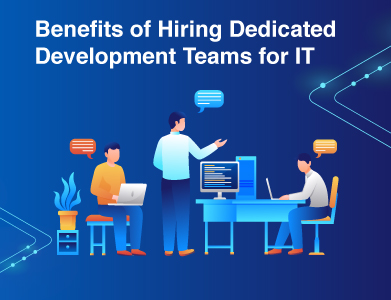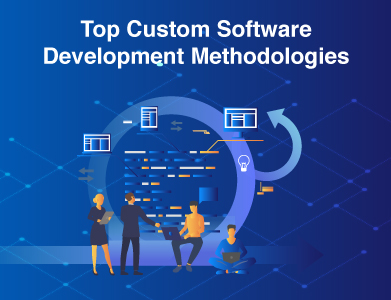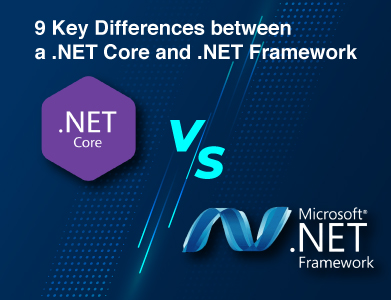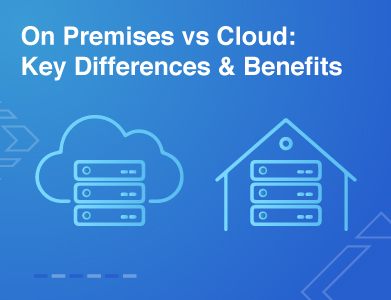AI cannot replace humans – sure but it reduces the work and accelerates the work of 5 others to boost the productivity of individual. A tool that can write stories, create pictures, and even help design products - all by itself and it is called generative AI. It is a type of computer program that can make new things based on what it has learned. Businesses are starting to use this amazing technology to work faster, save money, and come up with innovative ideas.
In this article, we'll explore how generative AI solutions are helping businesses, look at some real examples, and answer common questions.
What is Generative AI?

Generative AI is like a super-smart computer brain. It learns from lots of information and then uses what it learned to create new things. For example, it can write stories, make pictures, or even compose music. It's different from other types of AI because it doesn't just follow set rules - it can be creative and come up with new ideas on its own.
Explore Further: How Does Gen AI Work
How Generative AI Help Businesses?
Makes Work Faster and Easier
Generative AI can do many tasks quickly, like writing reports or creating pictures for ads. This means people in the company can focus on more important work that needs human thinking.
Example: A marketing team can use generative AI to write first drafts of blog posts. The team can then review and improve these drafts, saving a lot of time.
Sparks New Ideas
Sometimes it's hard to think of new ideas. Generative AI can help by suggesting new product designs or marketing slogans. This can lead to exciting new products or better ways to reach customers.
Example: A toy company might use generative AI to come up with new toy designs. The AI could suggest combining features from different toys in unique ways.
Personalizes Customer Experiences
Generative AI can create custom content for each customer. This makes customers feel special and more likely to buy products or services.
Example: An online clothing store could use generative AI to show each customer outfits that match their style and previous purchases.
Saves Money
By doing some jobs automatically, generative AI can help businesses save money on staff costs. It can also help find ways to make products more efficiently.
Example: A customer service department could use AI chatbots to answer simple questions, allowing human staff to focus on more complex issues.
Helps Make Better Decisions
Generative AI can look at lots of information quickly and suggest the best course of action. This can help business leaders make smarter choices.
Example: A farm might use generative AI to analyze weather patterns, soil conditions, and crop data to decide the best time to plant and harvest crops.
Improves Software Product Design
Generative AI can quickly create and test many different designs. This helps businesses make better products faster.
Example: A car company could use generative AI to design car parts that are stronger but use less material, making cars safer and more fuel-efficient.
Creates Content at Scale
For businesses that need lots of content, like product descriptions or social media posts, generative AI can create large amounts quickly.
Example: An e-commerce site with thousands of products could use generative AI to write unique descriptions for each item.
Enhances Customer Support
AI-powered chatbots can answer customer questions at any time, day or night. This improves customer service without needing to hire more staff.
Example: A bank could use a generative AI chatbot to answer common questions about account balances, transfer money, or explain banking services.
For brands to leverage Generative AI for Business, they need to focus on several key areas:
Data integration: Combining data from various sources, including internal systems and external partners, will be crucial for providing comprehensive solutions.
Rule setting: As user inputs become less constrained, it's essential to establish guidelines for appropriate AI responses.
End-to-end journey delivery: Brands should aim to fulfill the customer's entire need, even if it means partnering with other service providers.
Ecosystem development: Building strong partnerships will be vital for delivering complete solutions to customer queries.
Risk management: Companies must prioritize safety, fairness, privacy, and transparency in their AI implementations.
Industries Where Gen AI is making its Mark:
Content Creation
Platforms like OpenAI's GPT-4 can generate high-quality text content for blogs, articles, and social media posts. Companies like The New York Times and Forbes use AI to assist journalists in drafting articles and headlines, ensuring a steady flow of engaging content.
Design and Marketing
Tools like Adobe's Sensei and Canva's Magic Resize utilize generative AI to create stunning visuals and marketing materials. AI can generate logos, banners, and social media graphics based on brand guidelines, helping businesses maintain a consistent and professional appearance.
Product Development
Generative AI is transforming product design by creating prototypes and simulations. For instance, Autodesk's Dreamcatcher allows engineers to input design requirements and generate multiple design options for products. This accelerates the development process and leads to more innovative and functional designs.
Customer Support
AI-powered chatbots like IBM's Watson Assistant and Zendesk's Answer Bot provide real-time customer support, handling inquiries and resolving issues with minimal human intervention. These chatbots can manage large volumes of customer interactions, improving response times and overall customer satisfaction.
Entertainment and Media
Generative AI is used in the entertainment industry to create music, videos, and animations. Companies like Amper Music and DeepArt.io use AI to compose music and create artistic visuals, enabling content creators to produce high-quality media efficiently.
Examples of Generative AI in Business:
Coca-Cola's Marketing Campaigns
Coca-Cola wanted to create personalized marketing content at scale to engage its diverse customer base. By leveraging generative AI, Coca-Cola developed an AI-driven marketing platform that creates personalized video ads based on customer preferences and behaviour's. The AI-generated content led to a 50% increase in customer engagement and a 30% boost in conversion rates, demonstrating the power of personalization in marketing
Airbnb's Smart Titles
Airbnb, a company that helps people rent out their homes to travellers, uses generative AI to create catchy titles for property listings. The AI looks at things like the location, features of the home, and what guests like. It then writes titles that make people want to click and book. This has helped increase bookings by 10% for listings with AI-written titles.
Adidas' Futurecraft 4D Shoes
Adidas, the famous shoe company, used generative AI to design a new type of shoe sole using AI powered 3d printing technology. The company uses AI to study foot scans and movement data, creating custom shoe designs for the best comfort and performance. These designs are then 3D printed, making shoes that fit each customer's foot perfectly.
Netflix's Personalized Images
When you browse Netflix, the images you see for movies and TV shows are often chosen by generative AI. The AI picks images it thinks you'll like based on what you've watched before. This has helped more people find and watch content they enjoy.
Alibaba's Product Description Writer
Alibaba, a giant online shopping company, uses generative AI to write descriptions for products. The AI can write up to 20,000 lines of text every second. This helps sellers on the platform create good descriptions for their products quickly and easily.
Learn More: Generative AI Use Cases
Conclusion
Generative AI is an exciting new technology that's changing how businesses work. It can help companies create new products, serve customers better, and work more efficiently. While there are some challenges to using generative AI, like ensuring accuracy and addressing ethical concerns, the benefits can be significant.
As generative AI continues to improve, we'll likely see even more creative and helpful ways it can be used in business. Companies that learn to use generative AI effectively will have a big advantage in the future.
Remember, generative AI is a tool to help humans, not replace them. By combining the creativity and intelligence of humans with the speed and data-processing power of AI, businesses can achieve amazing things. Whether you run a small business or a large international company, generative AI has the potential to help your business grow and succeed in new and exciting ways
Contact Us Now to Get Started
01Can small businesses use generative AI too?
Yes! Small businesses can use generative AI in many ways. They can use it to write social media posts, answer customer questions automatically, create product descriptions, or design marketing materials. Many affordable tools are available that use generative AI.
02Will generative AI replace human workers?
While generative AI can do many tasks, it's not likely to completely replace humans. Instead, it will probably help humans work better and faster. Generative AI is good at repetitive tasks or creating first drafts, but humans are still needed for creative thinking, emotional understanding, and making important decisions.
03How can a business start using generative AI?
To start using generative AI, a business can: Think about which tasks take a lot of time and could be done by AI. Look for AI tools that can help with these tasks. Try out the AI tools on a small project first. Train employees in how to work with AI tools. Ask for help from AI experts if needed.
04Is generative AI safe to use in business?
When used carefully, generative AI can be safe and helpful. However, businesses need to be aware of some important things: Check the AI's work for mistakes or inappropriate content. Protect customer data and privacy. Use AI fairly and ethically. Understand the limitations of AI and when human judgment is needed.
05Which types of businesses benefit most from generative AI?
Many types of businesses can benefit from generative AI, including: Marketing and advertising agencies, Online stores, Media and entertainment companies, Healthcare and drug companies, Manufacturing and design firms, Banks and financial services, Education and training providers. However, almost any business that deals with content creation, customer service, or data analysis could find generative AI helpful.

